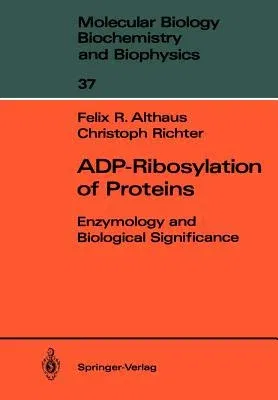Felix R Althaus
(Author)Adp-Ribosylation of Proteins: Enzymology and Biological Significance (Softcover Reprint of the Original 1st 1987)Paperback - Softcover Reprint of the Original 1st 1987, 1 February 2012

Qty
1
Turbo
Ships in 2 - 3 days
In Stock
Free Delivery
Cash on Delivery
15 Days
Free Returns
Secure Checkout
Part of Series
Molecular Biology, Biochemistry and Biophysics Molekularbiol
Print Length
238 pages
Language
English
Publisher
Springer
Date Published
1 Feb 2012
ISBN-10
364283079X
ISBN-13
9783642830792
Description
Product Details
Authors:
Book Edition:
Softcover Reprint of the Original 1st 1987
Book Format:
Paperback
Country of Origin:
NL
Date Published:
1 February 2012
Dimensions:
24.41 x
16.99 x
1.37 cm
ISBN-10:
364283079X
ISBN-13:
9783642830792
Language:
English
Location:
Berlin, Heidelberg
Pages:
238
Publisher:
Weight:
412.77 gm

